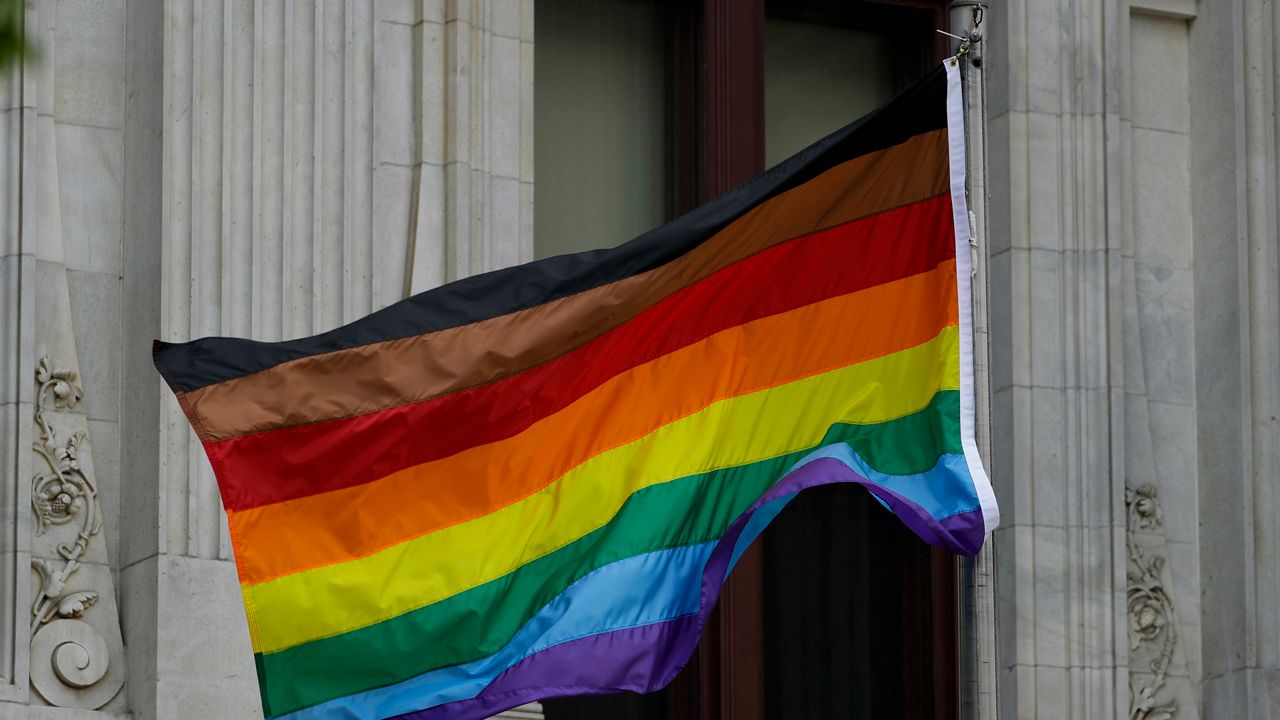LEXINGTON, Ky. — LGBTQ individuals often face challenges and barriers to accessing needed health services and, as a result, can experience worse health outcomes.
What You Need To Know
- LGBTQ patients can experience worse health outcomes that heterosexuals
- LGBTQ individuals have many of the same health concerns as the general population, they experience certain health challenges at higher rates
- subgroups of the LGBTQ community are more likely to suffer from certain chronic conditions and face higher prevalence and earlier onset of disabilities compared to heterosexuals
- Other major health concerns include HIV and AIDS, mental illness, substance use, and sexual and physical violence.
According to a study by the Kaiser Family Foundation, these challenges can include stigma, discrimination, violence, and rejection by families and communities, as well as other barriers, such as inequality in the workplace and health insurance sectors, the provision of substandard care, and outright denial of care because of an individual’s sexual orientation or gender identity.
While LGBTQ individuals have the same health concerns as the general population, they experience certain health challenges at higher rates, and also face several unique health challenges. In particular, research suggests that some subgroups of the LGBTQ community are more likely to suffer from certain chronic conditions and face higher prevalence and earlier onset of disabilities compared to heterosexuals. Other major health concerns include HIV and AIDS, mental illness, substance use, and sexual and physical violence. Besides the higher rates of illness and health challenges, some LGBTQ individuals are more likely to experience challenges getting care. Barriers include gaps in coverage for certain groups, cost-related hurdles and stigma, including poor treatment by health care providers.
A multidisciplinary team at the University of Kentucky has joined forces to improve medical and mental health services for the LGBTQ community.
“We’ve seen an increase in patients who are transgender or gender nonconforming (TGNC) admitted to the UK HealthCare inpatient adolescent behavioral health unit,” said Dr. Kelly Hill, UK HealthCare child and adolescent psychiatrist. “TGNC youth are at a significantly greater risk for depression, self-injurious behaviors and substance use compared to cisgender peers. To make matters worse, research shows TGNC youth have difficulty finding medical and mental health services where they feel comfortable and often postpone care due to multiple concerns, including discrimination.”
Ronnie Proctor, 30 of Lexington, said he can confirm that such barriers exist.
“Being in Kentucky, I actually don’t exactly just freely give [my sexual preference] out to my providers,” he said. “It’s not necessarily because of fear of discrimination or anything like that. It’s just, if it’s dealing with something sexual, then yes, there is a little bit of fear of discrimination. But it is a little difficult, because you never know, especially where I grew up in the Bible Belt, the doctor may not respond well to hearing that I’m homosexual, if I like, had worries about getting on Pre-Exposure Prophylaxis (PrEP) or anything like that. It’s difficult to speak with an actual doctor versus going to AVOL (AIDS Volunteers of Lexington) and having them write a prescription.”
The research project at UK involves focus groups where TGNC youth can discuss their experiences with the health care system, what makes it difficult for them to get the care they need, and ideas to improve medical and mental health care in their community.
“The focus groups are already helping to illuminate the distinct challenges TGNC individuals face, as well as what’s been supportive, and at times lifesaving,” Hill said. With the help of the focus group participants, the UK team is devising strategies — some quick and low cost — to improve care for TGNC populations.
“I imagine the increase in anxiety and depression has to do with everything that’s going on right now,” Proctor said. “Transgender and non-binary individuals are having their entire existence questioned. It’s not for the sake of biochemical or biology, it’s for the sake of morals. What confuses me the most is what I live by morally differs from what you live by morally, which differs from what your parents lived by morally. Your morals aren’t necessarily my morals. I can respect yours, but they’re not mine. Trans youth are basically being told they’re second-class citizens.”
Proctor said he is grateful for places like AVOL, AVOL is an advocacy group that provides free and anonymous HIV testing.
“You don’t have to provide them any details about you,” Proctor said. “If you are positive or negative and you’re wanting to seek medication, they can give you discounts and help you get in contact with a doctor who will assist with those types of things. If you are HIV positive, they will give you training and get you in contact with a doctor. They are very adept at handling HIV cases, and they do this all across the state.”
Proctor said AVOL works with doctors who are allies of the LGBTQ community or who are gay themselves.
“I can honestly say it is difficult to go to my primary care physician, who knows my parents and knows my grandparents, and say ‘I need an HIV test,’” Proctor said. “Going to someone who is a volunteer and basically ensures your information stays protected definitely helps.”
Visit UKBarriersStudy.com, email Dr. Hill at Kelly.hill@uky.edu or call 859-275-9175 for more information or to inquire about participating in a focus group.



